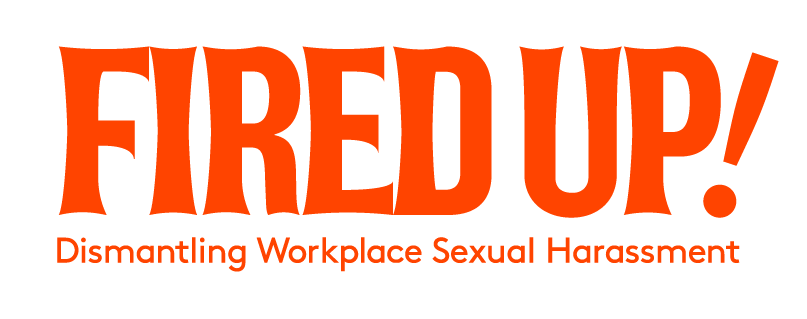If We Want To Prevent Sexual Harassment, We Need To Look At Racism And Homophobia Too
At least half of all women in Australia have experienced sexual harassment, abuse or violence. That’s 1 in 2 that has been sexually harassed, 1 in 3 that has been physically abused and 1 in 5 that has been sexually abused. Let that sink in. With #FiredUp, Refinery29 Australia makes an ongoing commitment to spotlighting this serious and pervasive issue with the goal of dismantling gendered violence in Australia.
So often, the conversation about sexual harassment in Australia talks about women, as if women are a single entity whose experiences are all the same.
If we want to seriously address sexual harassment, we need to start understanding sexual harassment from an intersectional lens.
AdvertisementADVERTISEMENT
Sexual harassment has happened to almost all Australian women. In fact, 85% of us.
It’s everywhere. And Australian women are fed up. That’s why we marched. And that’s why I hope that we’re at a real turning point. Not just in the way that we talk about sexual harassment and assault. But in terms of how we deal with it.
Women aren’t a homogenous group. How an individual experiences harassment in the workplace is impacted by the intersections of their Aboriginal and/or Torres Strait Islander background, culture, religion, LGBTQ+ identity, intersex status, and the intersections of class, gender, disability and so on.
Image Courtesy Of Diversity Council Australia
Lisa Annese is the CEO of Diversity Council Australia
As the Australian Human Rights Commission’s (AHRC) Fourth national survey on sexual harassment in Australian workplaces points out, women with intersectional identities experience an increased prevalence of sexual harassment.
That’s not to say that women with intersectional identities are more vulnerable to sexual harassment. When we suggest that some women are ‘vulnerable’ to harassment, it can impact or distract from the severity of the harassment and unintentionally lay blame on the victim.
But we know that the way different aspects of our identities interact affects the ways that harassment is perpetrated. And the reality is, the sexual harassment also often occurs together with other forms of discrimination such as racism or homophobia.
For example, in the last five years, Aboriginal and Torres Strait Islander women were significantly more likely than non-Indigenous women to have experienced sexual harassment. At the same time, Diversity Council Australia's (DCA) research report, Gari Yala, found that Indigenous employees continue to experience significant workplace racism and exclusion such as being treated unfairly because of their Indigenous background, or hearing racial slurs.
AdvertisementADVERTISEMENT
Because surveys are often conducted in English, data collection for culturally diverse women’s experiences is lacking. But DCA’s research has shown that culturally diverse women experience specific types of harassment where gender and cultural biases have a compounding or ‘amplifying’ effect. For example, this woman relayed to us her experience at work:
“
“He said, ‘Why are Asian women’s feet so small? So, they can stand closer to the sink!’ Then he got angry when I didn’t like it and said, ‘Why are you so uptight? You’re misconstruing what I’m saying.’ But it’s not that, it’s just that I want to be treated with respect.”
”
If we are designing prevention initiatives, we can’t ignore how racism and sexism interact.
Or take LGBTIQ+ women. The Australian Human Rights Commission (AHRC) tells us that almost all (92%) women who identify as gay, lesbian, bisexual, pansexual, queer, asexual, aromantic, undecided, not sure, questioning or other have experienced sexual harassment in their lifetime.
The way these forms of harassment play out is different, but we know from DCA research that LGBTIQ+ women have numerous experiences of sexual harassment such as being taken to strip clubs, being asked inappropriate questions about their sex lives and bodies, being propositioned and sexually harassed, and being fetishised for their sexuality:
“
“Men just tend to get a bit creepy around bisexual women.” “I had sexual overtures that came as a consequence of coming out at work.”
”
Again, if we don’t understand the experiences of LGBTIQ+ women, we can’t prevent it from happening in the future.
The AHRC report also identified that nine in ten (89%) women with disabilities have experienced sexual harassment in their lifetime. Research from the UK has also found that “women with disability experience higher levels of every type of sexually harassing behaviour reflecting the imbalance of power disabled women encounter at work and in wider society”.
AdvertisementADVERTISEMENT
And while sexual harassment can happen to workers of all ages, statistics show that young workers experience the highest levels, with three in four between the ages of 18 and 29 experiencing sexual harassment throughout their lifetime. Younger workers are often at the beginning of their careers or in non-permanent work, usually in lower positions of power that make them more prone to harassment and less confident to speak out against their harasser/s.
We also have a chance right now to improve prevention in workplaces by adopting a more proactive approach to minimise the risk of sexual harassment occurring. Last week parliament debated changes to the law in response to Kate Jenkins’ Respect@Work report. While the government rejected 49 of the 55 recommendations from the report, we maintain that fully implementing that report would be a great first step.
But finally, if we want to effectively understand and prevent workplace sexual and sex-based harassment, it’s critical that legislators, policymakers, and those implementing such policies, understand intersectionality, and take an intersectional approach to prevention.
We need to start by understanding the different experiences of different women.
Lisa Annese is the CEO of Diversity Council Australia.
If you or anyone you know has experienced sexual or domestic violence and is in need of support, please call 1800RESPECT (1800 737 732), the National Sexual Assault Domestic Family Violence Service.
AdvertisementADVERTISEMENT







